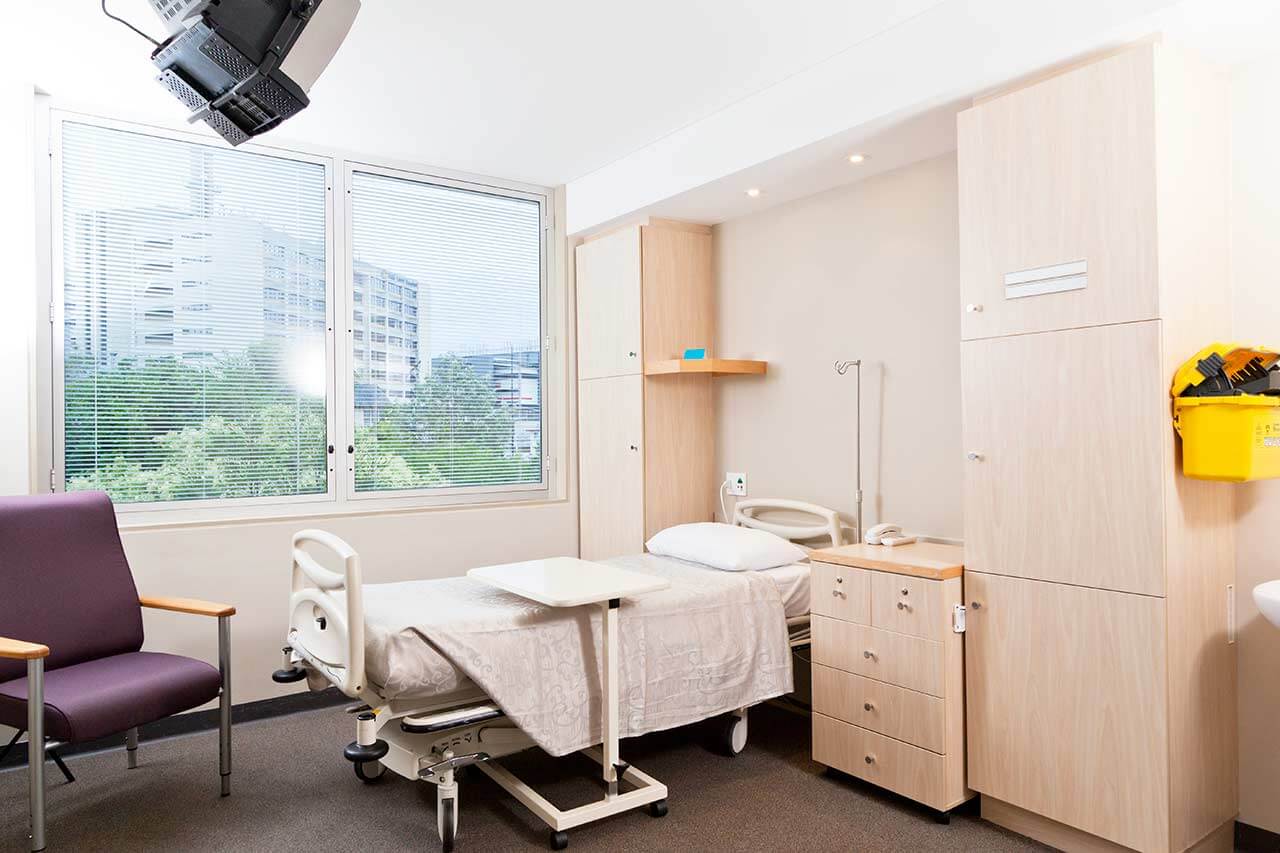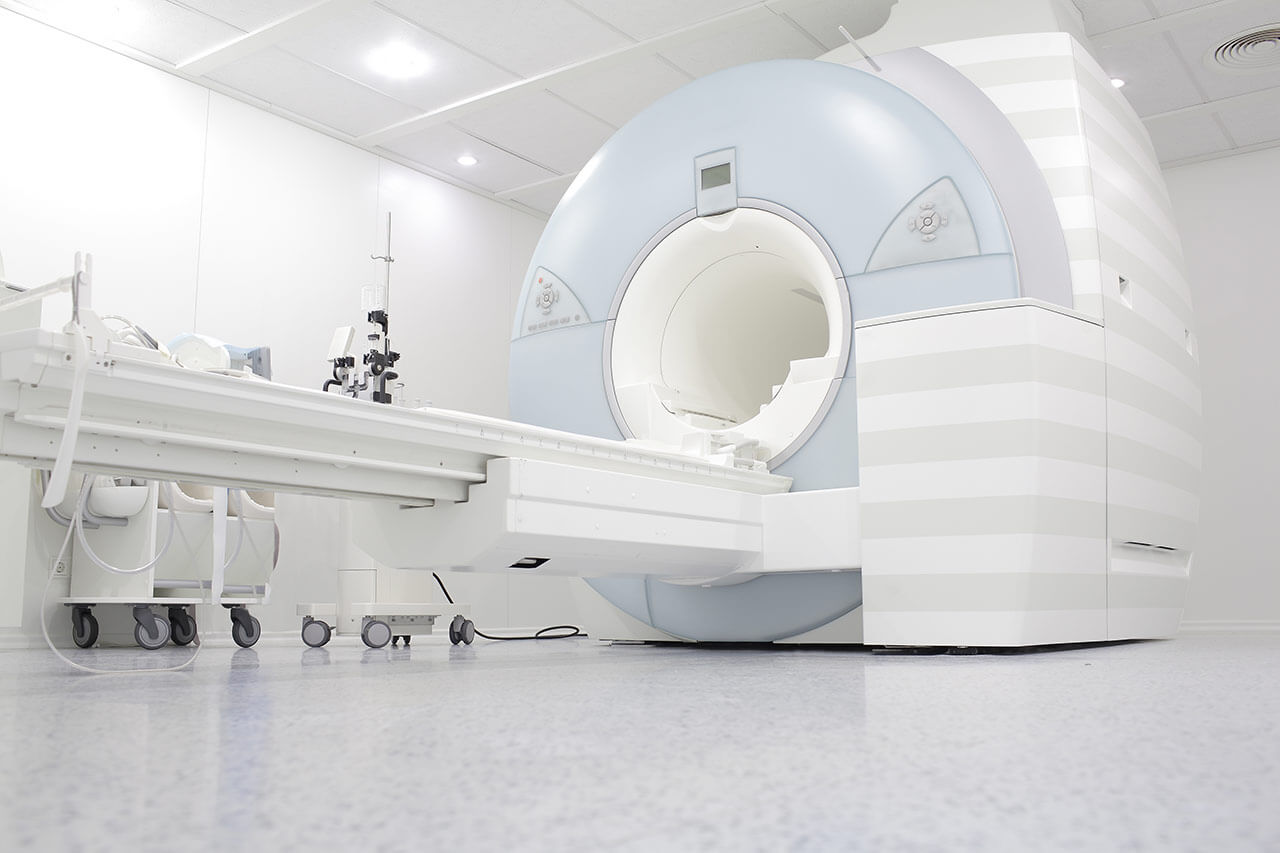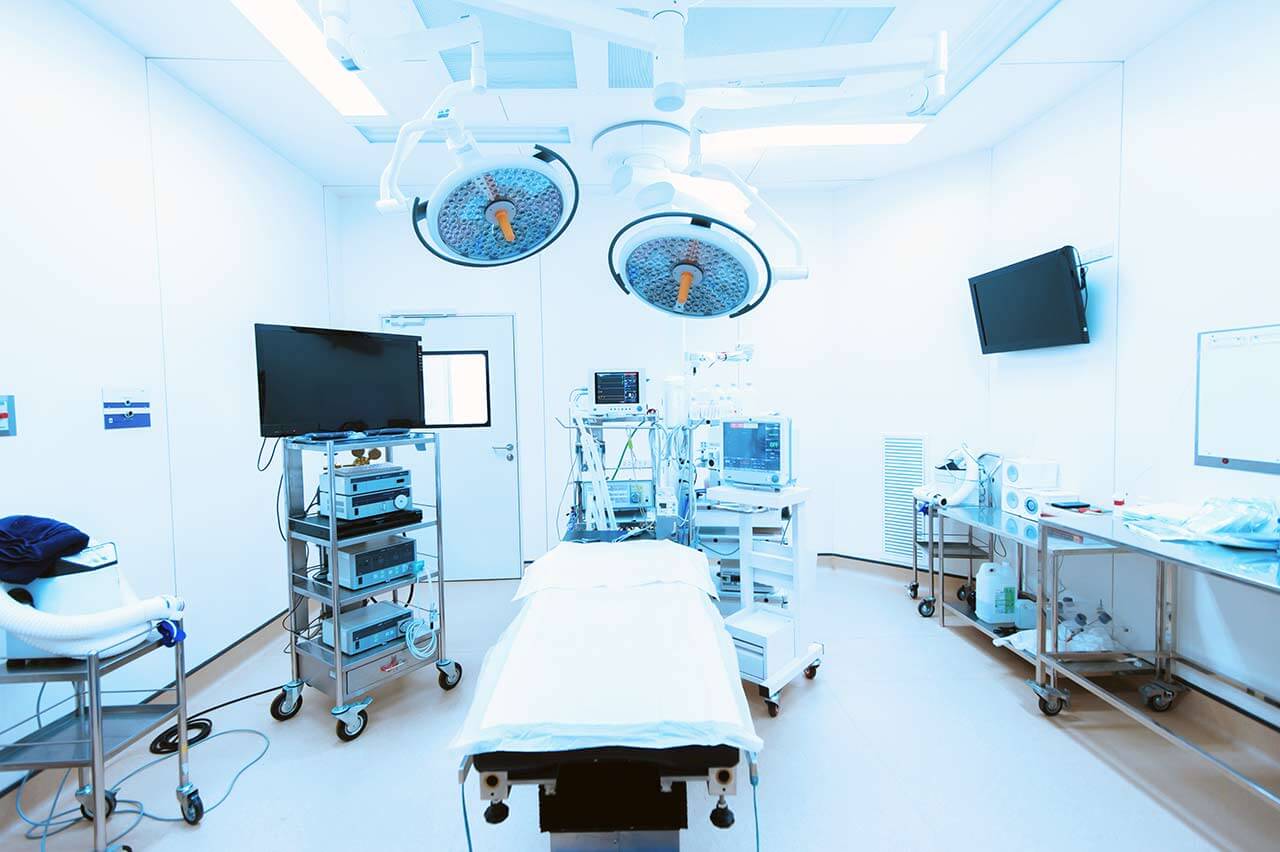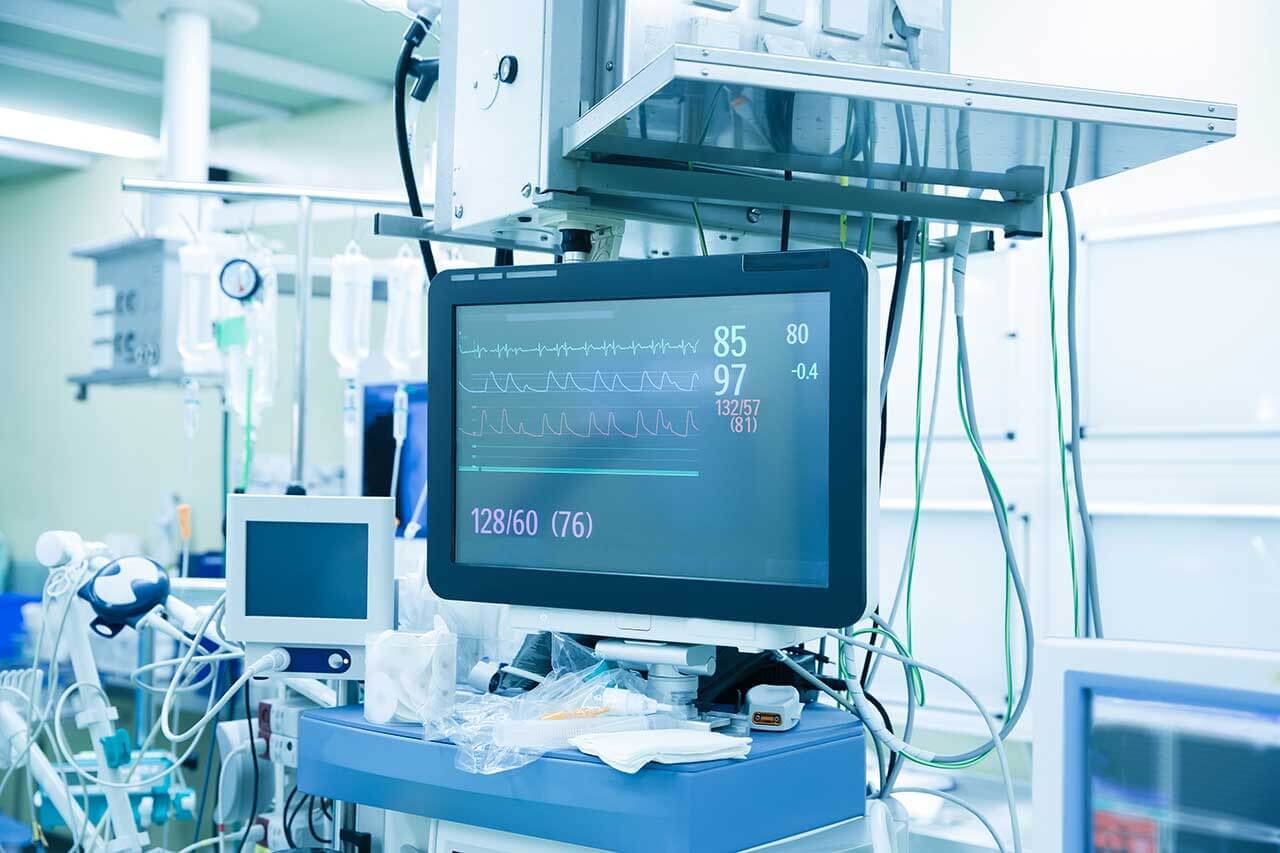
The program includes:
- Initial presentation in the clinic
- case history collection
- general clinical examination
- laboratory tests:
- complete blood count
- general urine analysis
- biochemical analysis of blood
- TSH-basal
- tumor markers
- indicators of inflammation
- indicators of blood coagulation
- abdominal ultrasound scan
- CT / MRI of chest and abdomen
- 1 course of chemotherapy
- consultations of related specialists
- symptomatic and specific treatment
- the cost of essential medicines and materials
- nursing services
- control examinations
- full hospital accommodation
- developing further treatment plan
How program is carried out
During the first visit, the doctor will conduct a clinical examination and go through the results of previous laboratory tests and instrumental examinations. After that, you will undergo an additional examination, including laboratory assessment of liver and kidney function, ultrasound scan. Based on the received results, the doctor will elaborate the chemotherapy regimen. If necessary, related medical specialists will be involved in the elaboration of a treatment regimen (tumor board).
Chemotherapy is carried out as the inpatient procedure, with mandatory admission to the hospital. After the placement of a venous catheter, you will stay in a comfortable ward. An infusion system will be connected to the catheter, through which the required drug or a drug combination will be administered. All drugs are administered by intravenous drip, slowly, so the total duration of the infusion can be up to several hours. All this time, doctors and nurses will monitor your health condition closely.
After the course of chemotherapy, you will stay under medical supervision in the ward for a few more hours. After the completion of the chemotherapy course and control examinations you will receive the medical report with detailed recommendations regarding further treatment. In the future, you will be able to have a distant consultation with your attending physician and schedule the next course of chemotherapy, if necessary.
Required documents
- Medical records
- MRI/CT scan (not older than 3 months)
- Biopsy results (if available)
Service
You may also book:
 BookingHealth Price from:
BookingHealth Price from:
About the department
The Department of Pediatric Oncology, Hematology, Pulmonology, Cardiology, Endocrinology, Gastroenterology, Hepatology, Infectology, Nephrology, Neurology and Epileptology at the University Hospital Rechts der Isar Munich offers the full range of medical services in all areas of its specialization. The health of young patients is in the safe hands of a large medical team, consisting of 60 highly specialized doctors and about 120 nursing staff. The specialists of the medical facility annually admit more than 5,000 inpatients, and about 1,500 children receive medical care at the day hospital. The department's doctors provide medical care to children of all age groups – from extremely premature babies weighing 500 grams to adolescents aged 18. The medical facility holds many specialized consultations, thanks to which young patients and their parents have the opportunity to receive detailed information about the diseases. During the diagnostics and treatment, doctors strictly meet the current clinical protocols and the requirements of professional societies. The department is headed by Prof. Dr. med. Julia Hauer.
The priority focus of the department's doctors is the examination and treatment of young patients with benign and malignant solid tumors, blood cancer and clotting disorders. During the therapeutic process, the specialists are guided by the recommendations of the German Society for Paediatric Oncology and Hematology (GPOH). The department's specialists most often resort to such treatment methods as chemotherapy, radiation therapy, targeted therapy, and bone marrow transplantation. Should a surgical procedure be required, the highly specialized surgeons take care of the child. Children with incurable cancers receive competent palliative care aimed at relieving pain and improving their quality of life.
The treatment of heart disease in children also occupies an important place in the department's clinical practice. The department's diagnostic rooms have state-of-the-art equipment for electrocardiography, echocardiography, 24-hour blood pressure monitoring and other examinations. It is noteworthy that the department's doctors detect some heart defects even at the stage of intrauterine development of the fetus. The most common pathologies in the field of pediatric cardiology include congenital heart defects, heart rhythm disorders (arrhythmias), fainting (syncope), and infectious cardiovascular lesions. Quite often, drug therapy and regular diagnostic examinations are enough to eliminate the pathology, but there are also cases when interventional catheter-based interventions or even open heart surgery are required. The most effective treatment method is determined on an individual basis.
The team of gastroenterologists is responsible for examining children with suspected gastrointestinal diseases and treating these pathologies when the diagnosis is confirmed. The specialists have vast experience in the treatment of chronic abdominal pain, constipation, diarrhea, food allergies, lipid metabolism disorders, acute and chronic liver diseases, pancreatitis, short bowel syndrome, inflammatory bowel disease, celiac disease, gastroesophageal reflux disease and other pathologies. The main therapeutic methods include drug therapy, diet therapy, and endoscopic procedures. The specialists always strive to use the most sparing therapeutic methods.
The department also admits children and adolescents with neurological disorders: multiple sclerosis, mitochondriopathies, neurometabolic and neurodegenerative pathologies, infantile cerebral palsy, motor and developmental disorders, stroke, spina bifida and hydrocephalus. Of particular interest is the treatment of epilepsy in young patients. To make a diagnosis, doctors conduct comprehensive diagnostics, which necessarily includes electroencephalography and magnetic resonance imaging. To deal with epileptic seizures, the department's neurologists use modern antiepileptic drugs and a ketogenic diet. If, according to the diagnostic findings, the specialists come to the conclusion that such treatment will not give the desired result, it is possible to perform vagus nerve stimulation.
The department's range of medical services includes:
- Diagnostics and treatment of cancers and hematopoietic diseases
- Solid tumors, including Ewing's sarcomas, osteosarcomas, rhabdomyosarcoma, etc.
- Leukemia
- Lymphoma
- Myelodysplastic syndrome
- Hemophagocytic lymphohistiocytosis
- Langerhans cell histiocytosis
- Hemoglobinopathies
- Immune thrombocytopenia
- Blood clotting disorders
- Diagnostics and treatment of respiratory diseases
- Chronic cough
- Bronchial asthma
- Rare congenital and acquired lung diseases
- Diagnostics and treatment of heart disease
- Congenital heart disease
- Arrhythmias
- Syncope
- Infectious cardiovascular lesions (pericarditis and endocarditis)
- Arterial hypertension
- Diagnostics and treatment of endocrine disorders
- Growth disorders
- Puberty disorders
- Phosphorus and calcium metabolism disorders
- Thyroid diseases
- Adrenal diseases
- Pituitary diseases
- Obesity
- Diabetes mellitus
- Diagnostics and treatment of infectious diseases
- Severe gastrointestinal infections
- Pneumonia
- Sepsis
- Bone infections
- Meningitis
- Purulent abscesses
- Diagnostics and treatment of gastrointestinal diseases
- Inflammatory bowel disease (Crohn's disease and ulcerative colitis)
- Coeliac disease
- Gastroesophageal reflux disease
- Lactose and fructose intolerance
- Chronic abdominal pain
- Pancreatitis
- Short bowel syndrome
- Diagnostics and treatment of liver diseases
- Acute and chronic liver diseases, including hepatitis
- Diagnostics and treatment of kidney disease
- Acute and chronic kidney failure
- Arterial hypertension caused by kidney failure
- Proteinuria
- Hematuria
- Congenital malformations of the kidneys and urinary tract
- Diagnostics and treatment of nervous system diseases
- Epilepsy
- Multiple sclerosis
- Mitochondrial diseases
- Neurometabolic and neurodegenerative diseases
- Cerebral palsy, movement and developmental disorders
- Neurovascular diseases, including stroke in children
- Spina bifida
- Hydrocephalus
- Diagnostics and treatment of other diseases in children
Curriculum vitae
Prof. Dr. med. Julia Hauer studied Human Medicine at Ludwig Maximilian University of Munich (1997 - 2004). In 2006, she defended her thesis. Habilitation in Immunology followed in 2015 at the Heinrich Heine University of Duesseldorf. During her studies, Prof. Hauer completed internships at leading hospitals – Harvard Medical School (2003), Columbia University in New York (2001) and Royal London Hospital (1998). From 2006 to 2009, she completed postdoctoral training at the Necker Hospital in Paris.
From 2004 to 2006, Dr. Julia Hauer worked as Assistant Physician at the Dr. von Hauner Children's Hospital, Ludwig Maximilian University of Munich. After an internship in France, the specialist took the position of Assistant Physician in the Department of Pediatric Oncology, Hematology and Immunology at the University Hospital Duesseldorf. After completing her residency in 2014, she became Senior Physician and Research Team Leader in the same department. In March 2017, the specialist was appointed as W2 Professor for Experimental Pediatric Hematology and Oncology in the same department. In 2018, Dr. Julia Hauer was appointed as Professor for Pediatric Oncology and Hematology at the Faculty of Medicine, University of Dresden, and Head Physician of the Department of Pediatric Oncology and Hematology at the University Hospital Carl Gustav Carus Dresden. In November 2021, the doctor became Head Physician of the Department of Pediatric Oncology, Hematology, Pulmonology, Cardiology, Endocrinology, Gastroenterology, Hepatology, Infectology, Nephrology, Neurology and Epileptology at the University Hospital Rechts der Isar Munich.
Photo of the doctor: (c) Klinikum rechts der Isar der Technischen Universität München
About hospital
The University Hospital Rechts der Isar Munich was founded in 1834. It combines long traditions with the very latest advances in modern medicine. The medical facility includes 33 specialized departments and 20 interdisciplinary centers, where patients can receive top-class medical care in all medical fields.
The hospital annually admits more than 65,000 inpatients for diagnostics and treatment, and about 250,000 outpatients receive effective medical care. The hospital also performs more than 40,000 surgical procedures every year, and about 2,100 babies are born here annually. One of the most significant achievements of the medical facility can be called the first transplantation of both arms above the elbow performed in 2008. The surgery that lasted 15 hours, and in which 40 doctors of various medical specialties took part, became a real sensation in the scientific world. Thanks to a unique surgical procedure, the doctors managed to give the patient new hands.
In addition, the employees of the hospital are actively involved in research activities, in which they study various diseases, as well as develop new therapeutic options for their treatment. It should be noted that the research institutes of the hospital are among the most reputable research organizations in the world. A striking example can be considered the Roman Herzog Comprehensive Cancer Center, whose specialists cooperate closely with the Comprehensive Cancer Center Munich in order to find new treatment methods for cancers.
The university hospital has a strict quality management system to maintain a high level of patient care. Since 2011, the hospital has been certified in accordance with DIN EN ISO 9001:2015 at the national and international level. The medical facility was also recertified by TÜV Rheinland in 2020.
The hospital annually provides medical services not only to German citizens, but also to thousands of patients from different countries of the world. This indicates that the hospital has an excellent reputation in the international medical arena and takes on the most complex clinical cases where other medical centers are unable to help the patient.
Photo: (с) depositphotos
Accommodation in hospital
Patients rooms
The patients of the University Hospital Rechts der Isar Munich live in comfortable single and double rooms with modern design. An accompanying person may stay with the patient in the single room. All patient rooms have an ensuite bathroom with shower and toilet. The furnishings of a standard patient room include an automatically adjustable bed, a bedside table for personal belongings, a table and chairs for receiving visitors, a wardrobe, a telephone and a TV. The patient rooms also have Wi-Fi.
The hospital also has enhanced-comfort rooms, corresponding to the level of a high-end hotel. Such patient rooms have additional amenities: a safe, a mini fridge and upholstered furniture.
Meals and Menus
The patients of the hospital are offered a balanced and healthy three meals a day: breakfast, lunch and dinner. The patients have a choice of three different menus for lunch – a classic full menu, as well as a dietary and vegetarian one. When cooking meals, the chefs comply with the current recommendations of the German Society for Nutritional Medicine (DGEM) and the German Nutrition Society (DGE).
If for some reason you do not eat all the foods, you will be offered an individual menu. The hospital also houses a cafeteria with a large assortment of hot and cold drinks, snacks and desserts.
Further details
Standard rooms include:
Religion
Religious services are available upon request.
Accompanying person
Your accompanying person may stay with you in your patient room or at the hotel of your choice during the inpatient program.
Hotel
You may stay at the hotel of your choice during the outpatient program. Our managers will support you for selecting the best option.
The hospital offers a full range of laboratory tests (general, hormonal, tests for infections, antibodies, tumor markers, etc.), genetic tests, various modifications of ultrasound scans, CT scans, MRI and PET / CT, angiography, myelography, biopsy and other examinations. Treatment with medications, endoscopic and robotic operations, stereotaxic interventions is carried out here, modern types of radiation therapy are also used. The hospital offers patients all the necessary therapeutic techniques.
- CAR T-cell therapy
- Autologous and allogeneic bone marrow transplantation
- Transcatheter aortic valve implantation (TAVI)
- Radical and organ-preserving interventions for kidney cancer
- Iridoplasty and iridotomy with Nd-YAG laser
These are acute and chronic leukemias, solid malignant tumors, heart failure, cardiac arrhythmias, heart valves stenosis and insufficiency, vasculitis, benign prostatic hyperplasia, pathologies of retina and vitreous body, Guillain-Barré syndrome, myasthenia gravis and other pathologies.
- Hematology and oncology
- Cardiology
- Nephrology
- Urology
- Ophthalmology
Over 877 highly qualified physicians work at the hospital.






